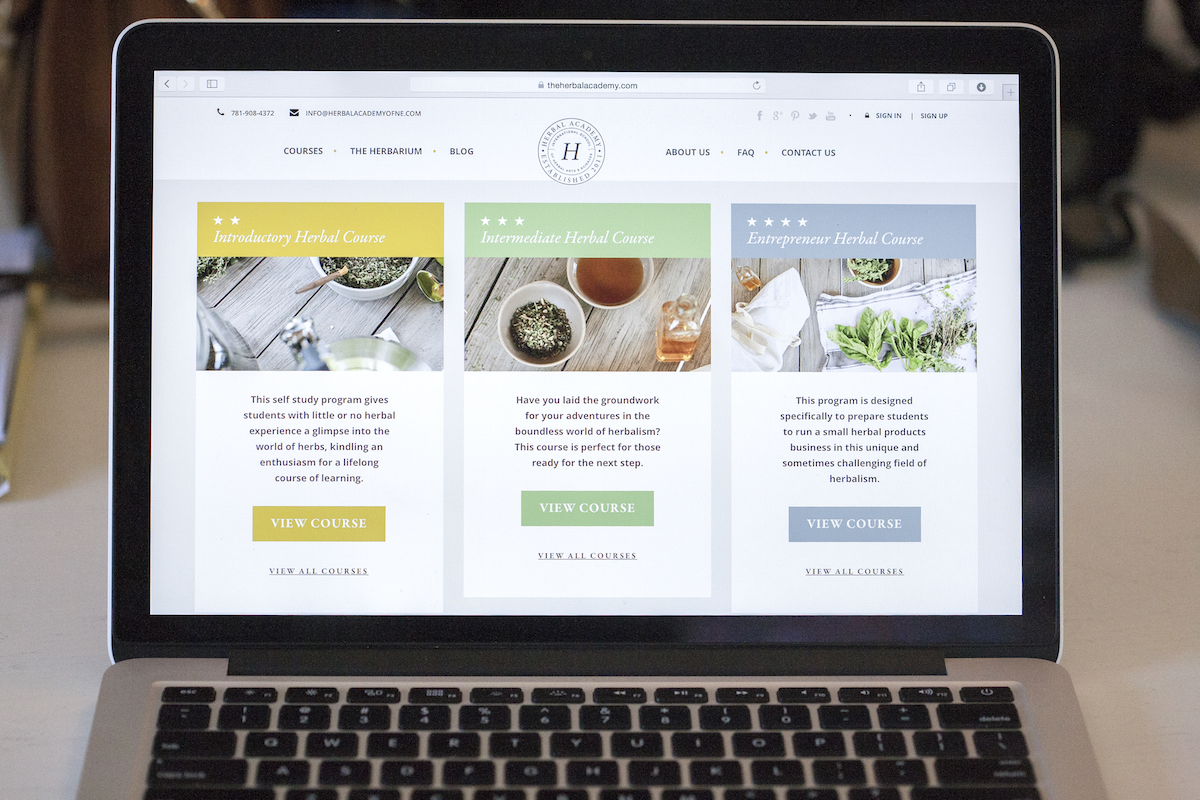
Can I Become a Certified Herbalist?
If you are reading this article, it is probably because you have a love of herbalism. You may be curious about herbalism as a career path and wonder what kind of training or credentials are required to become an herbalist. The good (and perhaps confusing) news is that there is no single path to becoming an herbalist and that technically, at least in the United States, you cannot become a certified herbalist through any type of standardized accreditation. However, this information is not to discourage you from pursuing an education or career in herbalism!
There are myriad ways in which to engage in the study and application of herbalism, both professionally and as a hobby. However, in the United States, herbalism is not a federally regulated licensed profession, as is the case for becoming a doctor, a nurse, or a chiropractor. Therefore, there is no single clear-cut herbalism career path, and strictly speaking, you cannot become a certified herbalist—nor do you need to! If a program claims to train you to become a “certified herbalist,” this is misleading information, as this designation does not exist legally. However, there are many options for attaining a quality education in herbalism, and many programs that offer a certificate of completion, or even a formal degree, so that you can demonstrate competency and feel confident in your chosen work as an herbalist.

Becoming an Herbalist: Vision and Pathways
Before deciding where you wish to study herbalism, it may be helpful to consider your dreams and goals for practicing herbalism. There are many options for studying herbalism as well as for working professionally as an herbalist, such as becoming a clinical or community herbalist, creating herbal products, teaching, and writing about herbalism. The type of training you pursue will likely depend on your goals and interests. For instance, if you are interested in teaching at a college, you will likely need an advanced degree, so getting a degree such as a Master’s of Science in Clinical Herbalism is a good idea.
If you are more interested in creating an independent business that formulates and sells herbal skincare products, you may wish to focus your learning on formulation, herbal skincare, and the business aspects of becoming an herbalist—which can be done through Herbal Academy’s programs, as well as a number of other herbalism schools. If you envision yourself working with clients as a clinical herbalist, meaning that you would consult with clients and advise on herbal protocols and supportive dietary and lifestyle plans, you have a number of options to consider. This article will focus on options for becoming a clinical herbalist. Let’s take a look at a few things to consider when launching your career path in clinical herbalism.

Clinical Herbalism
If you are interested in consulting with clients, you may wonder how you can safely and legally practice herbalism without the option of becoming a certified herbalist. The good news is that you can educate and serve clients from an herbal perspective, formulate and sell herbal products, and then charge a fee for all of your services. Being clear with your language and knowing your scope of practice are important, however. It is illegal for herbalists to diagnose, treat, cure, recommend, or prescribe—only licensed medical practitioners like doctors and naturopaths can do that. However, thanks to free speech and the First Amendment of the United States Constitution, herbalists can educate clients on how to use healthful food, lifestyle practices, and herbs to support wellness and correct imbalance so the body can move toward optimal well-being. When you are ready to go into practice, you can make this distinction clear in your marketing and any paperwork that you distribute to clients.
So how does this translate to real life? As a practicing herbalist, for example, you cannot legally diagnose a client with hypothyroidism and then prescribe thyroid hormone or herbs to “treat” their thyroid condition. However, you can meet with a client who is already diagnosed with a thyroid condition and educate them about various herbs that may help balance their thyroid function (and support their overall health) in conjunction with their doctor-recommended treatment plan. And, the client would need approval from their doctor, not you, to adjust any medications.
So, you absolutely can work with people as a clinical herbalist, and there is no single certificate that qualifies you to do so. The important thing to focus on is attaining a level of education and practical experience that provides the study and hands-on training you will need to guide clients with well-informed knowledge and expertise. Depending upon your particular goals, you will want to choose one of a few different pathways to becoming a clinical herbalist.

Attend a school that offers a certificate of completion. There are many herbalism schools, including the Herbal Academy, that offer certificates of completion for their deeper training programs. Here at the Herbal Academy, we have a range of programs to choose from, and all of our learning is online and can be completed at your own pace. If you live in a rural area, have young children at home, work full-time, or simply prefer to work at your own pace, we have many wonderful options for you to choose from.
Study in-person and/or apprentice. On the other hand, if you prefer in-person learning, you may be better off choosing a local herbalism school or even finding an experienced herbalist who is willing to mentor you. Apprenticeship can be a great way to receive hands-on, supervised training in herbalism. This can be a great option if you are self-motivated and if there is an herbalist in your area with whom you wish to study (and who is willing to work with you). If you choose this option, you will want to have a thorough conversation in advance to be clear on the expectations and timeline for your apprenticeship.
Attend an accredited school. Another option to consider is attending an accredited school. There are a few accredited schools in the United States that offer Master’s degrees in herbal sciences. For instance, Maryland University of Integrative Health, which offers an MS (Master of Science) in Clinical Herbal Medicine. Also, the American College of Healthcare Sciences offers a range of programs, such as an MS in Herbal Medicine and a Doctor of Science in Integrative Health. Just like any other school or program, you will want to be clear on time and financial commitments, course content, and how the degree and education will support you in your goals. One advantage of these accredited programs is that you may have the option to use student loans or even the GI bill to pay for tuition. Also, if you aspire to teach in a university or college setting, having a Master’s degree is usually required.

Become a licensed medical practitioner. Some accredited schools, such as Bastyr University, offer programs that train you to become a licensed medical practitioner, such as a naturopath. This means that you can diagnose, treat, and prescribe for patients seeking support. Medical school may not be for you, but if you want the freedom to diagnose, treat, and prescribe, a medical degree is required. As a naturopath, the scope of your practice would extend beyond herbalism, though it could include prescribing herbs.
Become a Registered Herbalist. You may want to consider taking the steps to become a peer-reviewed Registered Herbalist with the American Herbalists Guild. This credential is not required to practice and it is not a legal designation, but it is a way to establish a recognized level of expertise by your peers and affirm your commitment to the ethical practice of herbalism. You can complete your training anywhere to apply for Registered Herbalist status—even self study. However, you will want to become familiar with the requirements so that you can be sure that your training and experience align with what is needed to apply. After becoming a Registered Herbalist, you can use the acronym “RH(AHG)” after your name, which stands for “Registered Herbalist (American Herbalists Guild),” and you will be included in the organization’s Registered Herbalists database.
In Closing,
There are as many ways to embark on your herbalism journey as there are species of mint! Take the time to explore your options so that you can get clear on the ideal pathway for you, keeping in mind that there is no single certified herbalist designation, but there are many deep, rich, joyful, and fascinating ways to study and practice herbalism. Knowing your goals and doing your research on the best program for you will help set you on your unique and optimal herbal path.










